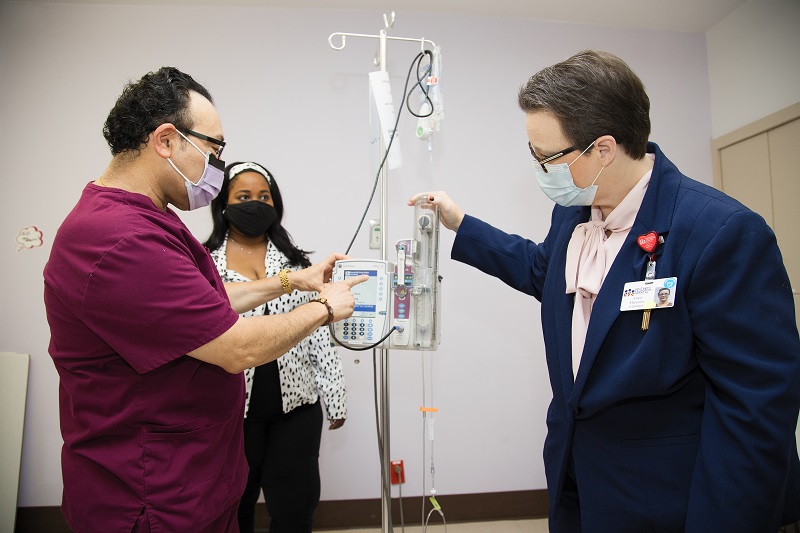New Classroom Space Dedicated to Nurse Education and Training

In the past year, the number of continuous education opportunities for nurses at Southern California Hospital at Culver City has significantly expanded.
Critical care internships allow medical-surgical and telemetry nurses to gain specialized training for placement in the ICU or ER. The New Grad Nurse Residency eases the transition from nursing school to real-world practice. And an operating room (OR) training program teaches both new graduates and experienced nurses new skills for a perioperative role.
The overhaul of the clinical education department introduced new programs and educators to the hospital, but one key aspect was still missing: classroom space.
“When I first came here a year and a half ago, there was no dedicated space for teaching and learning, but we were doing the best with whatever we could get our hands on,” said Jessica Dela Rosa, clinical education director. “The nurses really deserved a place where they could focus on what’s being taught.”
Unused Space Transitioned into Education Center
Now, the hospital has turned an unused labor and delivery unit into a clinical education center equipped with classrooms and skills labs for hands-on training. Instead of scrambling to find free rooms around the building, Dela Rosa and her colleagues have a whole area set aside as a dedicated learning environment for their nurses.
The labor and delivery service line at Southern California Hospital at Culver City never came to fruition, even though the unit was built out years ago. With the help and approval of hospital administration, the clinical education department began to mold the empty space into different teaching areas for its many new programs.
The operating room for C-sections and other surgical procedures was transformed into a medium-sized classroom with tables and chairs, and the nursery became a second, smaller classroom. Classrooms are needed for the New Grad Nurse Residency, which accepts new graduates from nursing school or those who have worked outside of an acute care setting for less than six months. Participants attend class once a week for their first three months, where they can debrief about their experiences under the guidance of a seasoned veteran registered nurse. The remainder of the residency includes a monthly four-hour seminar, also taught by Dela Rosa and her team in the center’s classrooms.
In addition, recovery rooms for new mothers were converted into skills labs where educators and nurses can simulate real-life patient scenarios. They practice procedures in a patient room with medical manikins and actual equipment such as training code carts, IV pumps, and catheters. Skills and simulation labs are an integral part of nursing education that provide an opportunity for nurses to enhance their learning and critical thinking abilities.
“Skills labs are one of the best ways that nurses learn because we’re so hands-on by nature,” said Dela Rosa. “In my ten years working in education, I’ve seen that not every organization has an opportunity to have a simulation lab, so this was a big win for us. I’m really proud of this space.”
The new clinical education center are constantly in use — a testament to how much that dedicated space really was needed —and Dela Rosa hopes to expand it even further in the months to come.
